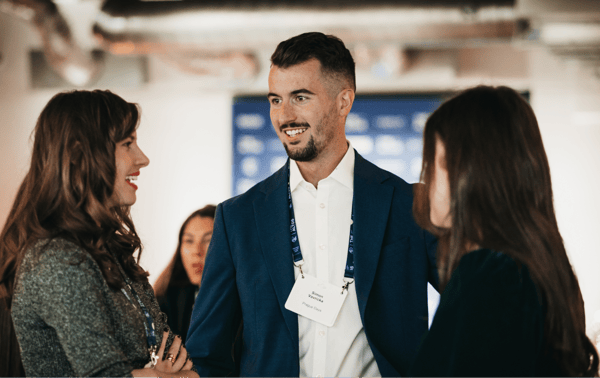
The audience at The Altos London probably weren’t expecting to be hearing so much about goats, or video games, during the day. But nothing was off-limits at our flagship event this year.
The Altos is more than a hospitality industry awards ceremony — it’s also a chance for the sector to get together and tackle some of the issues that the corporation accommodation sector is facing.
But among the hard-hitting debates there were some lighter moments, and honest takes about why trying to predict the future is futile.
Here are some of the best things we heard from our panellists during the December 5 event at London’s Landing Forty Two.
“We’re still working on the ‘I’ bit”
On the topic of Artificial Intelligence, William Parry, CEO and Co-Founder, Altido, joked: “We’re still working on the I bit.”
Parry appeared on the “Redefining Extended Stay Accommodation for Tomorrow's Business Traveller” panel (pictured below), where speakers were quizzed on their respective efforts so far.
But he continued: “We are looking at it, so we’re upgrading a lot of our technology at the moment which enables us to use a piece of software called Enso Connect which is partly linked to the guest portal, and through that they’re using ChatGPT. And that enables us to proactively message guests … prompting them at the right times but also servicing enquiries, which is the first line of defence. It’s early days for us, but I’m sure it’s going to be a big part of our business going forward.”
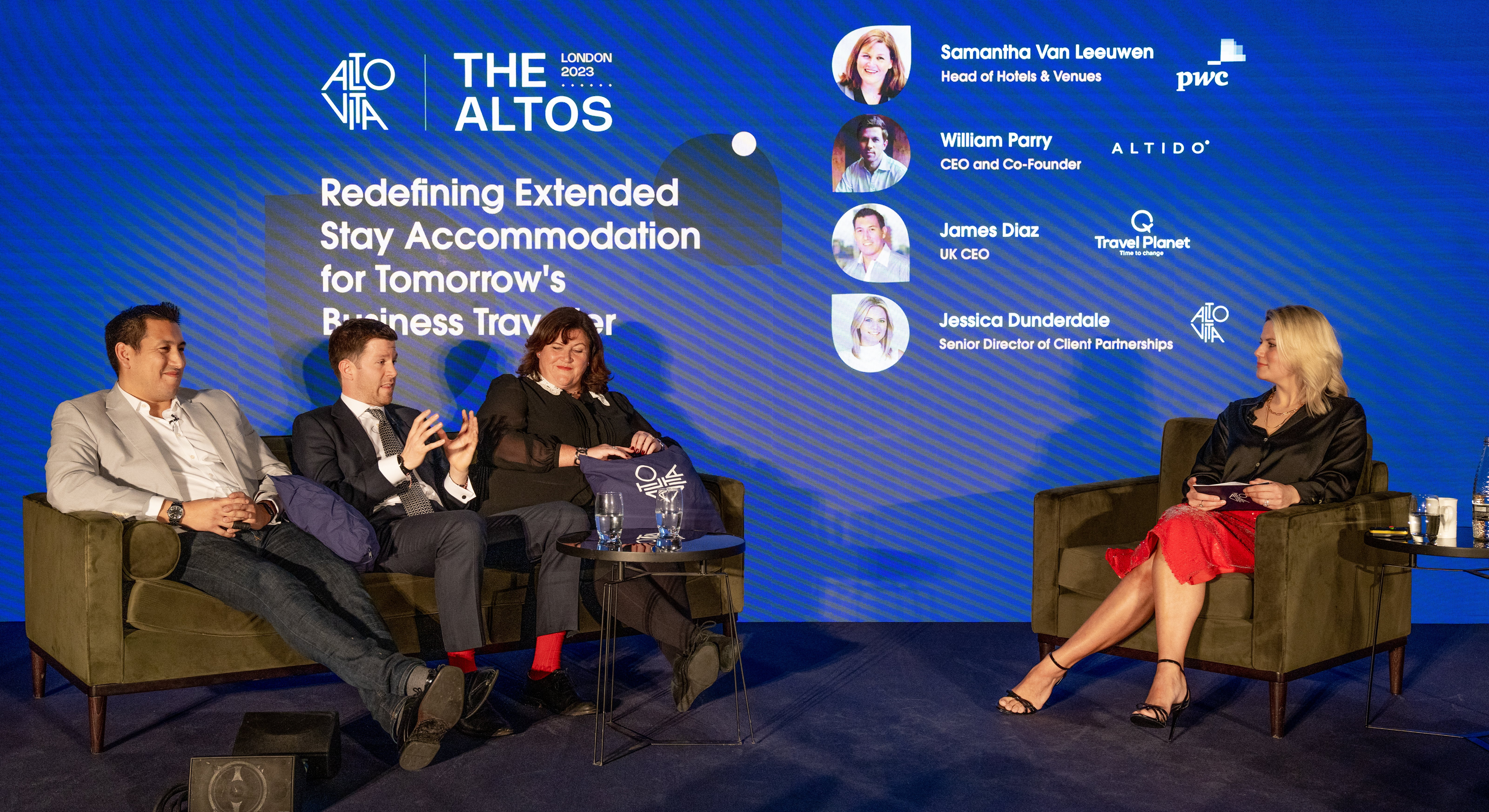
“We had the Covid pandemic; now we have the loneliness pandemic”
Robin Clifford (pictured below, centre), Director of Sales EMEA at Guesty, was in a reflective mood during a panel called “The Hospitality Strategies Fuelling Growth in Europe.”
“We had the Covid pandemic, now we have the loneliness pandemic. A lot of us work from home, and we don’t interact as much, and that’s why conferences are back in a big way. People want to go and engage,” he told the audience.
The panel, moderated by Thomas Fleming, Senior Client Development Manager at AltoVita, covered the topic of "community" substantially, with one speaker sharing how this was a key factor to her company’s success — and recent funding of €300 million.
Sana Shajarisales, Investment Manager at Outsite, noted how more and more companies were offering remote work as a benefit for employees.
“What we try to do to keep our members coming back, is (to offer) a consistent experience,” she said. “They arrive at any of our spaces across the world, and they know the simple things. The WiFi’s going to be the same, the password’s going to be the same, it’s going to automatically connect, they’ll have the Outsite app which tells them how to check in, the list of places they can visit, the contact details of the community manager. For digital nomads that’s important as they are by nature solo travellers in most of the cases.
“When you work in a new space, you expect a consistent experience and consistent quality , and you want to feel like you belong to a community, and that’s what we do.”
Fellow speaker Kearon McCarthy, Global Sales Director at Staycity, also revealed community was a focus for him, citing weekly running clubs, social events and investment in its public areas to get people out of their apartments. “We have workstations in apartments … but really, who wants to spend all their time working on their own? It’s about enticing the customer to come down, meet other guests.” he said.
Guesty’s Clifford added: “For me, the hardest thing to do in business in the modern world is to build a community and scale it.”
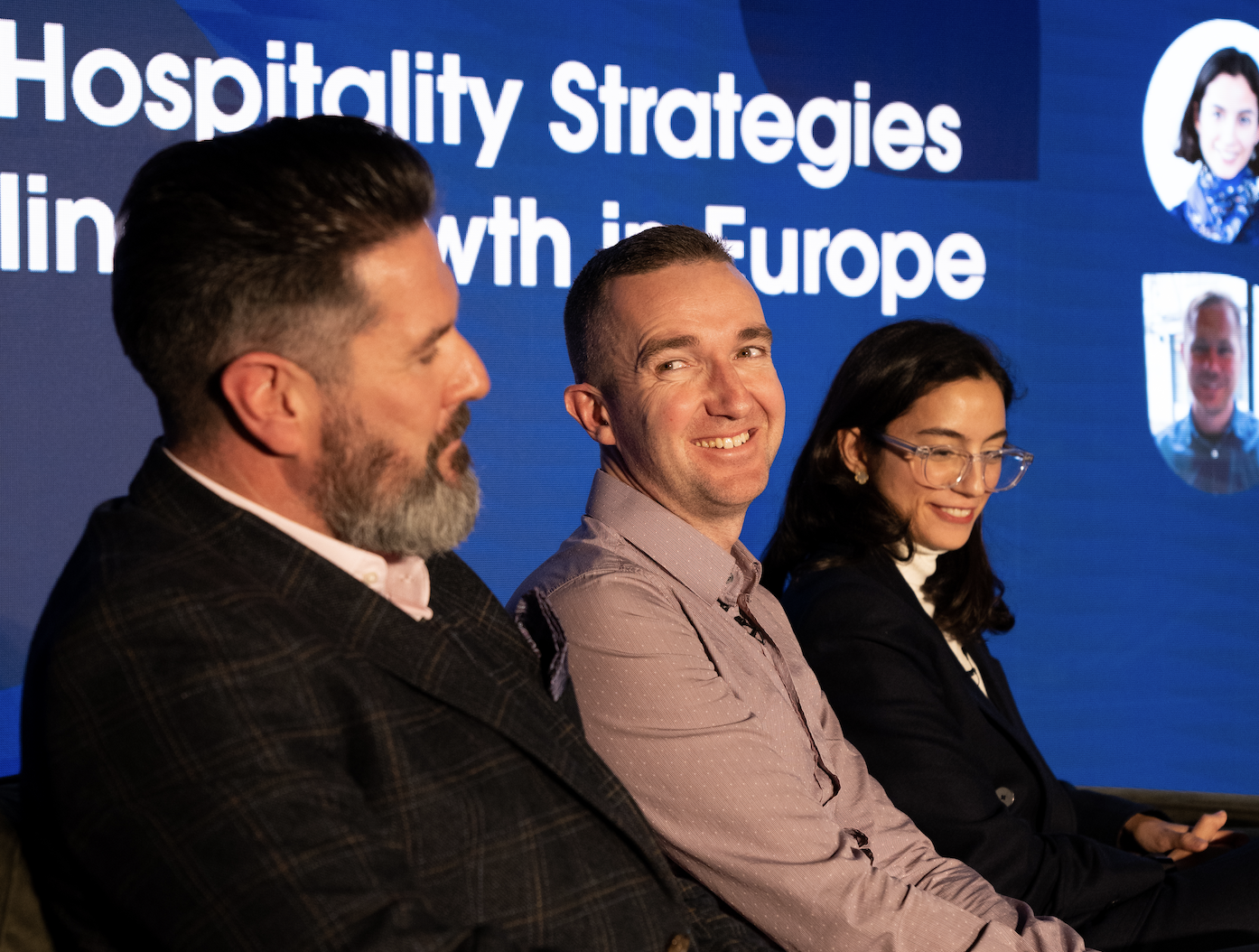
“If you’ve never owned a goat, it’s definitely a pet worth having”
During a fireside chat, a leading travel buyer started talking about her charitable work with animals.
Karen Hutchings, Global Head of Travel, Meeting & Events at EY, began by speaking about her passion for providing a home for rescue animals, which includes Brian, who's a male goat that was previously destined for the butchers.
“For me, every animal I have, and there are many, they’re all rescues. And the one thing that everybody can do is stop going to breeders … there are always animals somewhere that need a home. If we could even get people doing that to start off with, that would make a difference. It’s something I’m very passionate about.”
During the conversation with Vivi Cahyadi Himmel, CEO & Co-founder of AltoVita, she also revealed that she would soon be getting involved with a dog sanctuary in Goa, India.
But back to Brian. "He’s turned out to be more famous than me, frankly," Karen joked. "But if you’ve never owned a goat, it’s definitely a pet worth having. I had no idea how much fun a goat could be until I got him, and he’s brilliant."

“One of our most efficient buildings is one of our oldest buildings”
Sustainability was a constant topic throughout the day, and Staycity’s McCarthy surprised delegates with this revelation: “One of our most efficient buildings is one of our oldest buildings.”
And this came down to one fact: it doesn’t have air conditioning. The discovery was made after the aparthotel operator surveyed its portfolio.
“We found out some of our properties have things in place we didn’t even realise. From beehives on roofs, solar panels, bat nests on roofs… fortunately we don’t have gas on any of our properties, and all of our properties bar one use renewable energy,” he said.
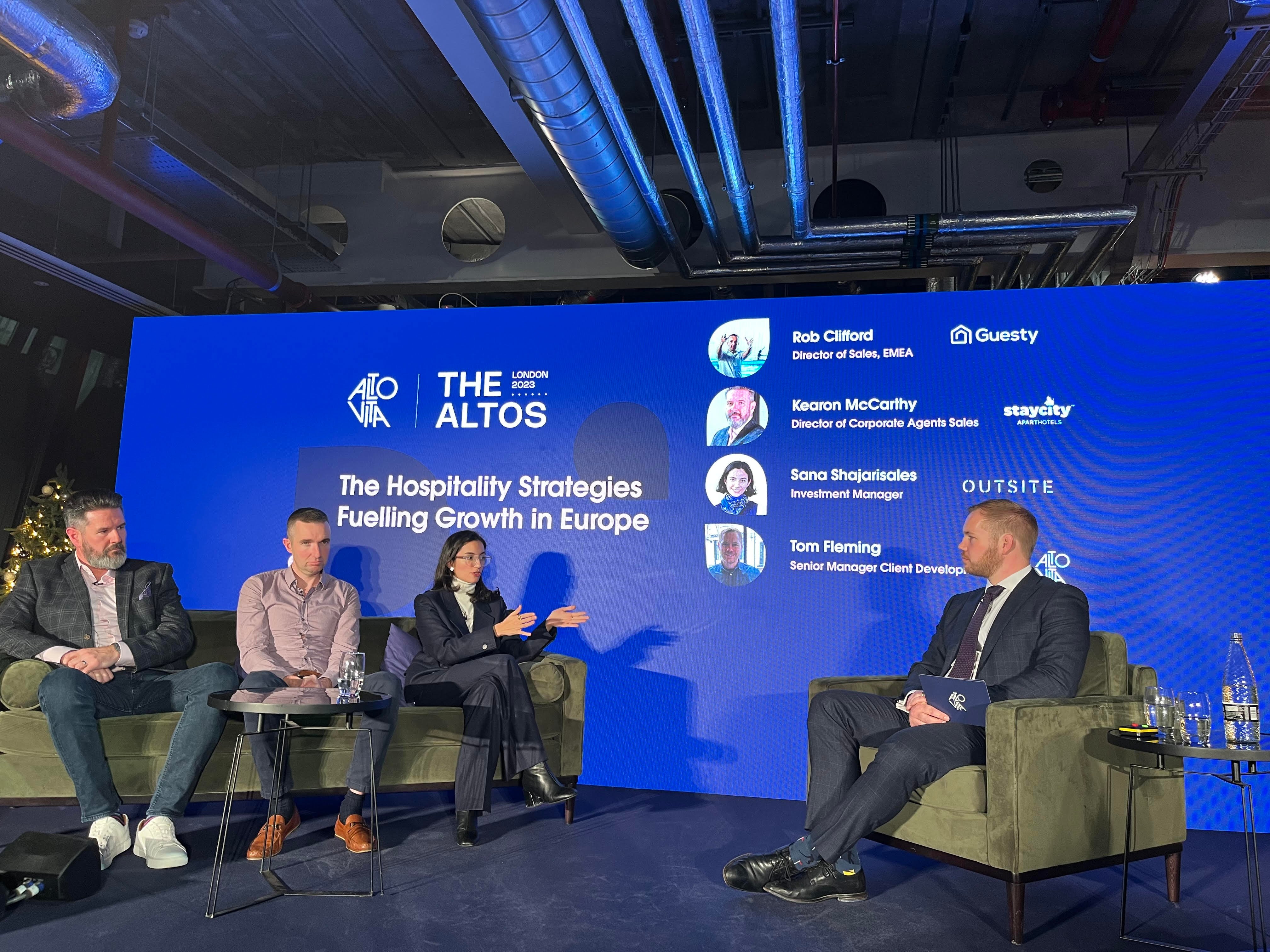
“I think of it like Tetris”
One speaker likened the task of balancing extended stay bookings with short-term bookings like a game of Tetris.
“Trying to predict and forecast extended stay demand is really difficult,” said Michael McCartan (pictured left, below), Area Vice President (EMEA) at IDeaS. “I think of it like Tetris. If you play Tetris with extended stay, the likelihood of blocking out short stay availabilities, and vice versa, becomes really tricky if you don’t automate that with (artificial) intelligence.”
He advocated the use of technology, and algorithms, that can play the game for you. “That really saves you a lot of time, and allows you to price more accurately. But also it gives you an opportunity to balance your extended stay with your short stay,” he added.

“I hate hearing anybody comparing to 2019, because we actually shouldn’t”
Also during her fireside chat, EY’s Karen Hutchings urged the industry to forge a new path forwards, and one that focuses on travelling for business in a more sustainable way.
And she didn't seem too pleased with this August’s report from the Global Business Travel Association that predicted business travel spending worldwide would “recover” to its pre-pandemic total of $1.4 trillion in 2024, and grow to nearly $1.8 trillion by 2027.
"If we’re serious about what we want to do, prior to there being enough sustainable aviation fuel out there, then we cannot refer back to 2019," she said. "The challenge you have in something like GBTA is they are focused on business travel, and it’s in their absolute interest to see it grow all the time. For me, it needs to be growing in a controlled manner, and if we just carry on growing without putting pressure on the airlines, the oil companies, to make more sustainable aviation fuel, then we’re not doing right by the planet. That’s the reality of it."
She added that sustainable aviation fuel represents 1% of aviation fuel at the moment. "That is ridiculous, and embarrassing to be honest, and that’s a whole global problem."
She continued: "For me, they shouldn’t be publishing this type of thing, they should be publishing more a graph around the production of sustainable aviation fuel, and what the impact of that should have."
As for EY, she shared how before Covid she helped manage $2.2 billion in travel spend, and $400 million in meeting and event spend.
When quizzed by AltoVita’s Vivi Cahyadi Himmel on what the figure was for 2023, she replied it was $1.3 billion in travel and expense, and $300 million on meeting and event spend.
“And that is exactly where we want it to be," she said. "We went out, the chairman went out, with a very stringent target, that we would reduce our emissions by 35% (by 2025). 70% of that 35% comes from business travel, so there was no way we ever wanted to go back to the $2.2 billion. So the $1.3 billion is actually where we want it be, and that means we’re on track to deliver the emissions reduction."
She said that from a meetings and events perspective, there's been a "swing to virtual. Where before there were four particular meetings a year, now two are virtual, two are in-person. And we’re happy with that as well."
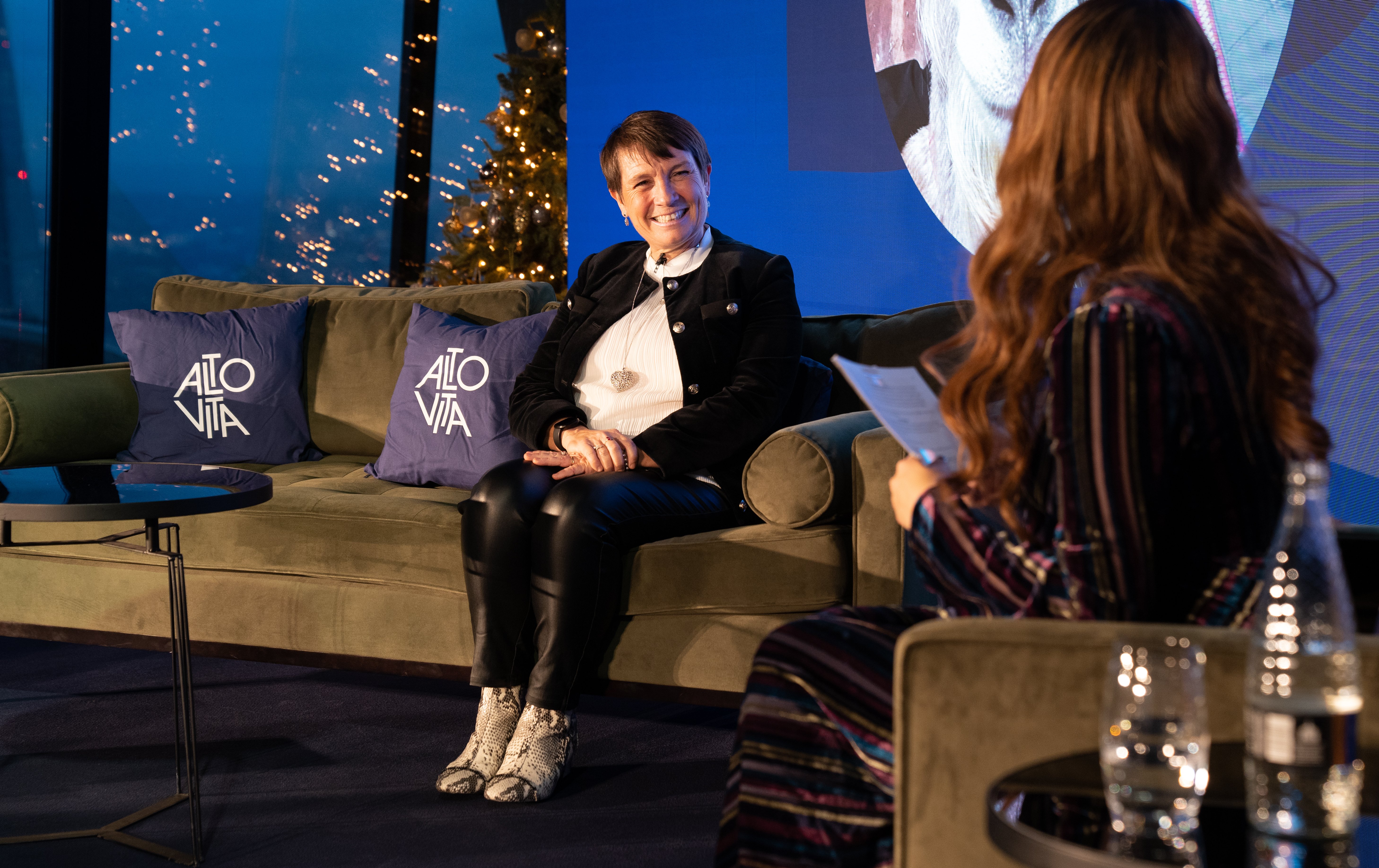
“It’s unpredictable!”
We looked to industry leaders for answers, but Andy Conduit-Turner (pictured centre, below), Director of Sales and Technology Enablement at Cartus, highlighted that any attempts to predict the future, in the current climate, can be difficult.
“Predictions, highball ones? It’s unpredictable! It’s really difficult,” he said when quizzed during the “Future Trends for 2024” panel.
“It’s going to be diverse, people want different things, depending on their industry, the range of people they’re hiring, where they’re hiring them from,” he said.
But he said that one safe bet was to focus on sustainability, particularly for Europe, and pinpointed “rotational assignments” as a growing trend for the year ahead.
IDeaS’s McCartan tried to offer a more concrete picture: “Most people are predicting the demand (for accommodation) will be there,” he said, when reflecting on his attendance at several industry conferences over the past weeks. ”It won’t grow to levels we’ve seen recently, but it won’t dip. Good, but not fantastic, but certainly not bad.”

“Apartments are becoming a part of hotels”
Not only are the major hotel chains launching growing numbers of extended stay brands, hotel developers are increasingly factoring in apartments (or residences) at the design stage.
That’s according to Simon Thomas, head concierge at The Lanesborough, and keynote speaker at The Altos.
“We’re seeing a lot of new hotels going up in London, and the model has changed,” he said. “Whereas before the capital investment goes into a hotel, and you try to get ROI back over a period of time, now apartments are becoming a part of hotels.”
He said the build now includes a section of hotels that are apartments, and they’re being sold off. “That reduces that capital investment, and you can go straight into running a hotel as it should,” he added.
Meanwhile, he noted how his luxury hotel, which is part of the Oetker Collection, has guests who stay for 12 months in some of its bigger suites. “That’s not a cheap occupation,” he joked. “The reason is service, what they’re really after is that hotel service.”
Thomas also drew on his experience as president of the Clefs d’Or, and recalled the elite concierge association was once speaking “very closely” with Marriott’s serviced apartments division, which was looking at making their service more hotel-based.
“One of the things they wanted, because (the Clefs d’Or) is internationally recognised, and travellers do look for the keys on the lapels of concierges, they wanted that for their apartments, and understandably so — it’s trying to up the level of service they’re delivering.
"We discussed that at some length, and found an angle where we can accommodate them into our organisation, where we can give them the exposure, to see the operations in a five-star hotel, and then go back to the apartment operations, which may be a bit slower ... It’s literally like putting the five stars on the door.”

Interested in becoming an AltoVita Hospitality Partner? Find out more here, and the different ways you can gain access to our unique corporate demand.


